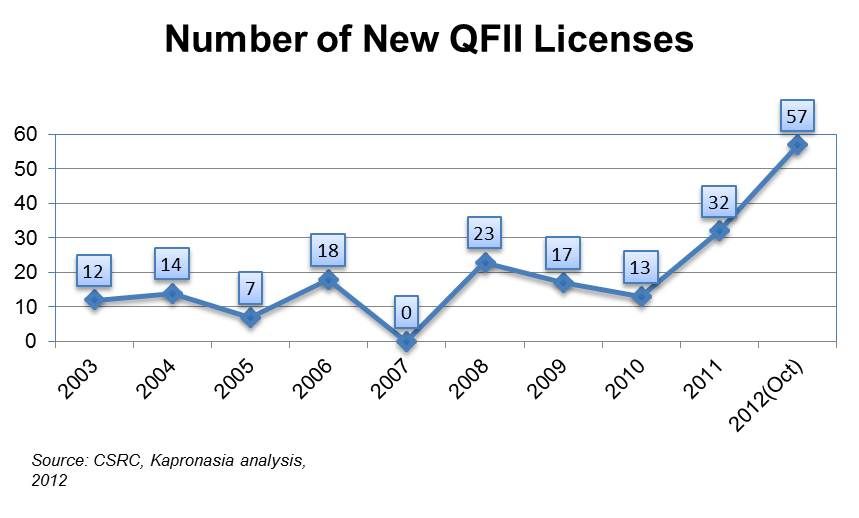So why are the QFII and RQFII becoming so popular in 2012? We see 5 primary drivers:
- As China’s economy is currently growing more slowly than in previous years, the government is opening Chinese capital markets in an attempt to boost economic growth.
- Slower global economic growth is pushing Western investors to consider investing more in China as the ROI might be better as compared to other global markets.
- RMB appreciation because of QE3*; China’s strong trade surplus and higher interest rate.
- The belief that China is going to lead the world out of the economic crisis due to a faster recovery in China’s economy as compared to other parts of the world. China is still growing at a rate of 8% while many countries’ economies are growing slowly or even stagnant with some like Japan experiencing a recession (-0.9% GDP growth in Q3). It is also expected that China’s economy will surpass the US in 2016.
- Historical evidence shows that QFII funds are very good at purchasing stocks when the capital market is near the bottom. During the past 10 years, QFII funds had very strong performance largely down to solid fundamental analysis and a very clear understanding of economic cycles. It was estimated that the value of QFII investments doubled over past 10 years as compared to the Chinese A-share index which has returned to the same levels as 10 years ago.
For financial IT companies, developing suitable products including developing trading software and payment software for these newly qualified financial institution and banks is an emerging opportunity. These products and services could be customized as the clients asked for. From the investors’ perspective, a more opening Chinese capital market can make them feeling more comfortable and reliable to do investment on feasible objects.
*QE3=quantitative easing, which is a monetary policy drew up and executed by Federal Reserve of US on Sep. 13th, 2012, just printing more USD through market operations to stimulate the US economy. People keeping USD in hand are more willing to exchange these dollars into other currencies including RMB.

